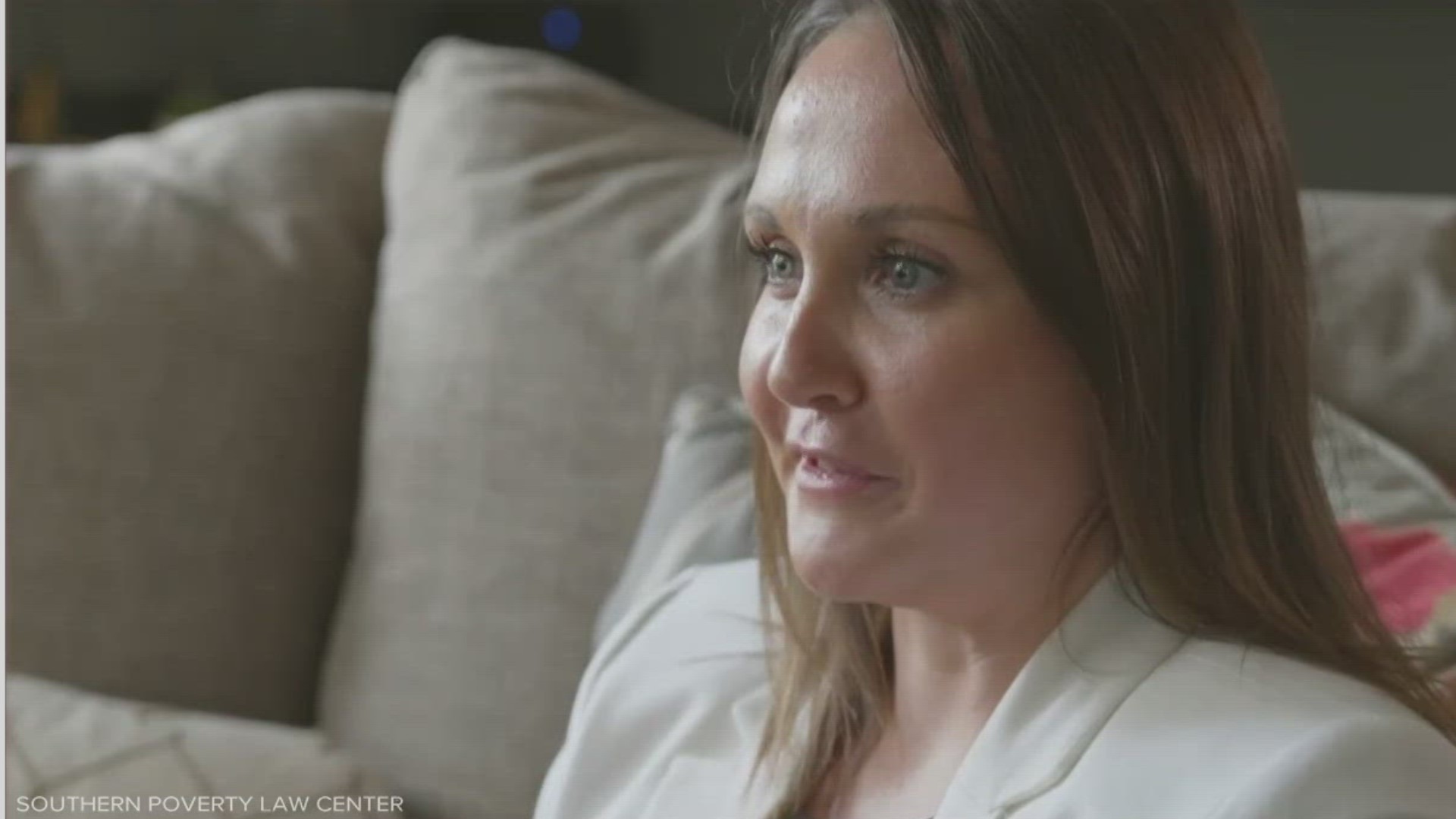ATLANTA — In a video released by the Southern Poverty Law Center this week, Katherine Rinderle, a teacher from Cobb County, speaks out about her current predicament as she finds herself at the center of a heated battle over a new state law.
Rinderle claims that her actions, which involved bringing the book "My Shadow Is Purple" to her classroom, have led to a recommendation for her termination by the Cobb County School District.
"All of a sudden, I saw myself on the outside with my administration and the parents on the other side," Rinderle said.
"My Shadow Is Purple," a book allegedly chosen by Rinderle's students that address the topic of gender identity, was challenged by a concerned parent. In response, the Cobb County School District recommended that Rinderle be fired, invoking Georgia's Divisive Concepts law, which was signed into law last year.
This legislation places restrictions on how grade school teachers can discuss race and other topics in the classroom. Proponents, including Georgia Governor Kemp and other Republicans, argue that the law prohibits the teaching of "divisive" concepts.
The law specifically prohibits the promotion of claims that the United States is fundamentally or systematically racist, that any group of people is inherently racist or oppressive, and that individuals should not experience psychological distress based on their race. Other topics include gender and sex.
Similar bills with identical language have been proposed in numerous states, with support from the Center for Renewing America, a think tank led by former President Donald Trump administration officials.
When complaints are lodged against school districts, they must respond accordingly, and dissatisfied parties have the option to appeal to the state Board of Education. If the board determines that the school district is at fault, it has the authority to suspend some or all of the district's waivers from state regulation.
Laws similar to Georgia's have faced legal challenges in several states, including Florida, Ohio, Oklahoma, and New Hampshire. Critics argue that these laws amount to censorship in the classroom, impeding educators' ability to provide accurate historical context and denying students an accurate education.
Opponents claim that the legislation violates the First Amendment right of students to access information and ideas, as well as the 1st and 14th Amendments' protections against punitive action based on speech.
"Teachers are now in a state of uncertainty," Craig Goodmark, Rinderle's attorney, said, asserting that his client's situation is the direct result of a confusing and ambiguous piece of legislation. "They don't know where the line is, who might complain, or when complaints will be made. Consequently, they are not even approaching the line."
In response to the controversy, the Cobb County School District issued a statement to 11Alive, maintaining that Rinderle's actions were appropriate considering her overall conduct and professional history. Currently, Rinderle is on paid administrative leave and is scheduled to appear before a termination tribunal in August to determine her fate.
The debate surrounding Georgia's Divisive Concepts law continues to intensify as educators, lawmakers, and advocacy groups clash over the possible limitations it places on classroom discussions.

